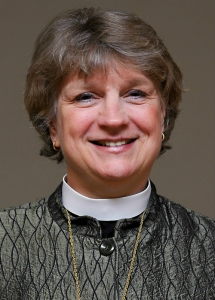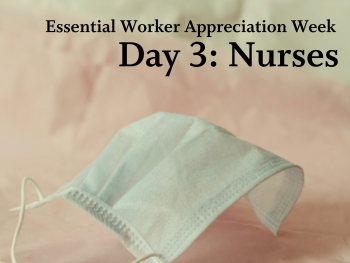 By Bishop Ann Svennungsen
By Bishop Ann Svennungsen
Two of the hardest jobs I’ve had were working at the Wee Care Day Care Center and waiting tables at the Toole County Fair. I was exhausted after trying for eight hours to anticipate another activity to engage a two-year-old. And, after an evening shift at the food tent, I was so overtired I had endless nightmares about forgetting someone’s food order.
The coronavirus pandemic has put a spotlight on those whose hard work we’ve come to call “essential.” It has also revealed the often inverse relationship between their working conditions and their importance:
- The entire food production system is sustained by countless workers who earn minimum wage and work in difficult conditions (e.g., the pork processing plant in Sioux Falls).
- The nurture and teaching of children depends upon daycare workers whose average pay is $10/hour or about $22,000/year. Not only are these children the scientists and leaders of tomorrow, they are also the dependents of those in healthcare and other essential work.

Follow each day’s post during “Essential Workers Appreciation Week on the Minneapolis Area Synod’s Facebook page: https://www.facebook.com/mplssynod/
IN HIS REFLECTIONS ON the Feast of St. Joseph the Worker last Friday, Pope Francis said, “Today … let us pray for all workers, so that no one might be without work and all might be paid a just wage. … The vocation God gives us … [is] to … work. But this can be done only when the conditions are just and human dignity is respected. … Every injustice done to a person who works is a trampling on human dignity, including on the dignity of the one who commits the injustice.”
“Every injustice done to a person who works is a trampling on human dignity.”
We’ve begun to ask questions about how different the world might look after the pandemic. What are we seeing more clearly in this time of crisis? What are we learning? And, what changes will we seek because of what we’ve learned?
Today we see more clearly the working conditions of our “essential workers.” May we also use this time to study the systems that create those conditions and consider how we might work with Pope Francis to ensure that “working conditions are just and human dignity is respected.”
